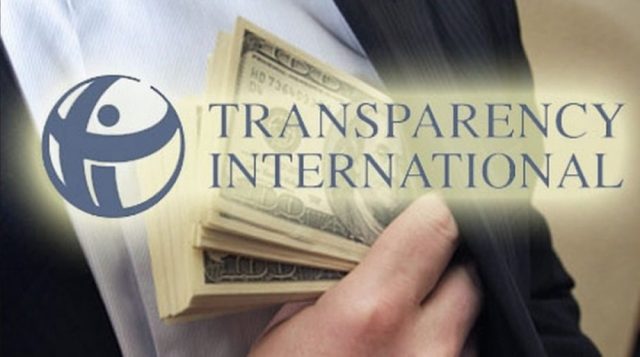Transparency International has called on the government of Nigeria to outlaw security votes in its governance, describing it as an opaque corruption-prune funding mechanisms.
The Africa Programme Manager of Defence and Security unit of TI, Ms Christina Hildrew, stated this in Abuja at a two-day Stakeholders Conference in Abuja on Wednesday.
Hildrew also called for measures to put in place for effective oversight structures to monitor confidential security spending, including procurements. “Security votes are opaque corruption-prune security funding mechanisms widely used across Nigeria’s three tiers of government.
He said investigation has shown that an estimated 670 million dollars annually, transacted mostly in cash, were security vote spending and it is not subjected to legislative oversight or independent audit because of its substantively secretive nature.
She also supported the establishment of Security Trust Fund at state level to support the phasing out of security votes.
She said that checks and balances needed to be put in the system so as to ensure accountability and transparency of what security expenditure was going to occur to ensure that it protected citizens.
This, she said, was in terms of putting in place systems for the efficient recovery of assets from Nigeria.
She said that though there had been some successes in assets recovery, especially with the James Ibori case, there was more to be done.
Hildrew decried the slow progress the many investigations and assets recovery processes were going, adding that Nigeria could curb her many money laundering challenges by developing a unified defence sector anti-corruption strategy.
She also advised that public access to defence and security information should be extended, and protection given to whistle-blowers.
On his part, Mr Vaclav Prusa, Programme Manager, Anti-Corruption, CISLAC, said that the conference was organised to discuss issues of illicit fund outflow because Nigeria was affected by it more than the rest of Africa.
Prusa said data showed that more money went out of Nigeria than any other country in Africa, adding that as at 2015, it was estimated that about 20 billion dollars to 25 billion dollars went out of Nigeria annually.
He said Nigeria’s ranking low in TI’s perception index in spite of its effort to fight corruption, would be a thing of the past.
Prusa said though this administration had recovered millions of dollars like the 321 million dollar Abacha-loot repatriated, and domestic assets being recovered by anti-corruption agencies, they were not accounted for.
He called for a framework like a database where assets and funds confiscated would be kept because citizens needed to know about them so that ordinary Nigerians could enjoy the benefit.

 Football6 days ago
Football6 days ago
 Entertainment5 days ago
Entertainment5 days ago
 Football7 days ago
Football7 days ago
 Business4 days ago
Business4 days ago
 Football7 days ago
Football7 days ago
 Football5 days ago
Football5 days ago
 Crime6 days ago
Crime6 days ago
 Health5 days ago
Health5 days ago

